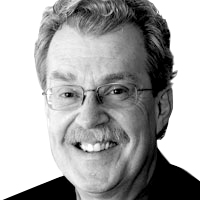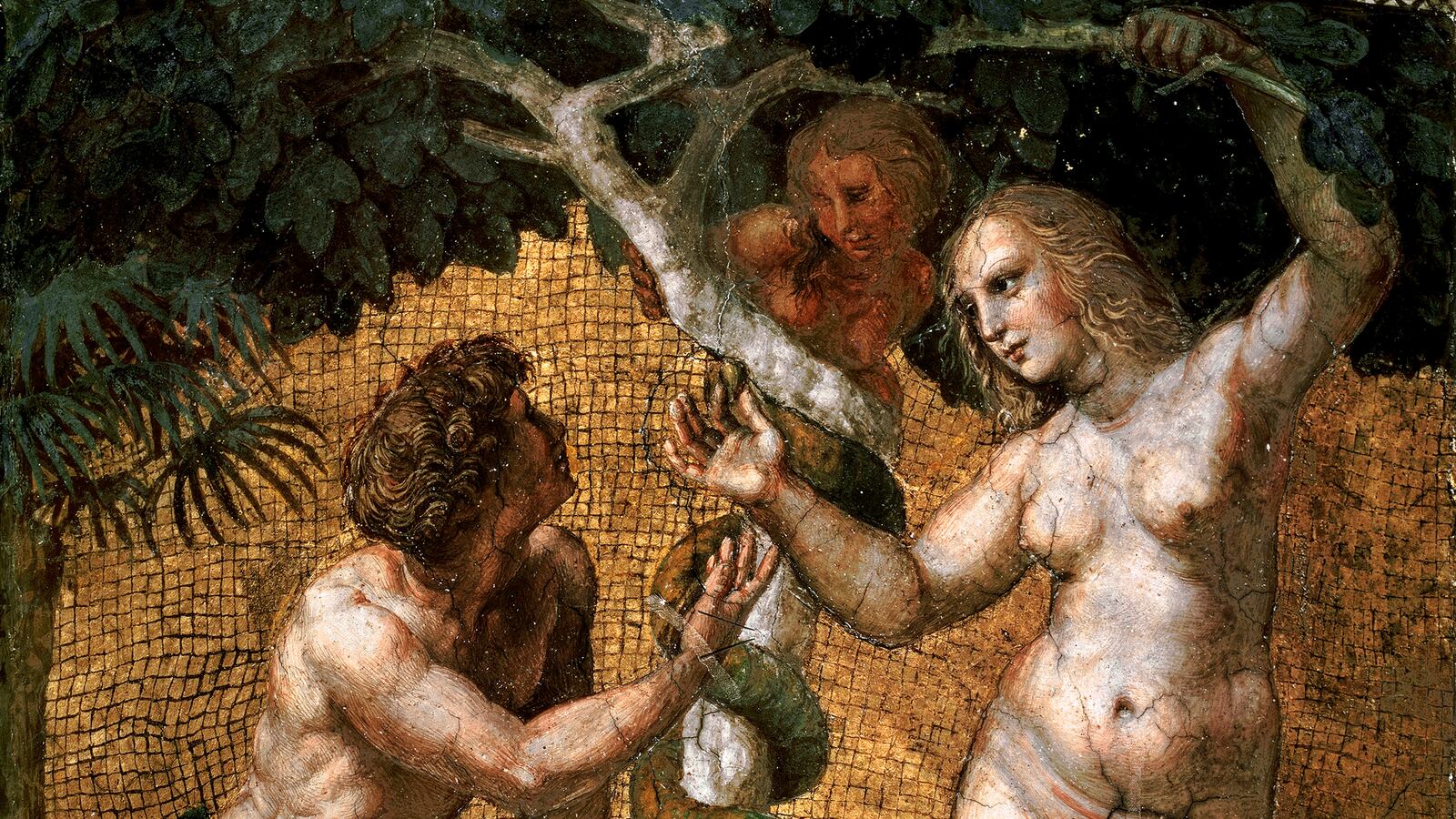The evangelical Christian Reformed Church (CRC), an evangelical denomination centered mostly in the Midwest U.S. and Canada, voted last week not to set up a committee to examine the denomination’s theological positions involving the origins of the world and of human sin. The CRC’s 2014 Synod decided that there was no need for a six-year study of the complex issues surrounding the relationship between modern science and Christian theological beliefs because its affiliated scholars—especially at its flagship institution, Calvin College—were already conducting rigorous scholarship on the issue.

“The ongoing work of [CRC-affiliated colleges] doesn’t warrant us putting resources and money into [the study committee] for six years,” said Chris De Vos, the reporter for the synod’s advisory committee.
The trouble is, while CRC scholars have indeed been a significant force in advancing the evangelical understanding of science, their work has also been the target of reactionary attacks so intense some of them eventually left the college. In fact, the rejected proposal was born amid the fallout from a recent episode at Calvin that saw a distinguished professor dismissed for suggesting that Adam and Eve were not historical figures.
The CRC represents one of the most intellectual traditions within evangelical Christianity in North America, and sponsors several top-ranked colleges. Calvin College, in Grand Rapids, Michigan, is ranked by U.S. News and World Report as one of the top 100 liberal arts colleges in the country. Calvin faculty have shaped Christian discourse in important ways since its founding in 1876. Alvin Plantinga, who Time called “America’s leading orthodox Protestant philosopher of God,” spent most of his distinguished career at Calvin.
Calvin College scholars have long led the way in engaging contemporary scientific theories of origins from traditional biblical and theological perspectives. Former physics professor Deborah Haarsma is the president of the BioLogos Foundation, which promotes evolution to evangelicals. Geologist Davis Young probably did more than anyone to help evangelicals make peace with the idea that the earth is billions of years old, not thousands, as the Bible suggests. His book Christianity and the Age of the Earth was an important counter to the young-earth creationism that has long been—and remains—the default position for evangelicals. Calvin astronomer Howard Van Till was for years the leading evangelical champion of the Big Bang Theory. His 1986 book The Fourth Day persuaded many evangelicals that the Big Bang was not just “entirely fiction,” as some influential creationists still claim.
Like at most evangelical colleges, scholarly work at Calvin is constrained by a “statement of faith,” a sort of theological manifesto that employees at many Christian institutions are required to sign and uphold. Calvin’s theology, like that of the CRC, is defined by the Canons of Dort, written at a synod in the Dutch city of Dordrecht in 1618-19. The Canons of Dort are typical of many “confessions” that define the various branches in the constantly splitting world of Protestantism. Many emerged when some disagreement could not be resolved and a faction split off, defining itself over against another group, with the confession creating and constraining the new group.
The Dort document ranges widely and covers many issues. The part dealing with human origins reads as follows:
Human beings were originally created in the image of God and were furnished in mind with a true and sound knowledge of the Creator and things spiritual, in will and heart with righteousness, and in all emotions with purity; indeed, the whole human being was holy. However, rebelling against God at the devil’s instigation and by their own free will, they deprived themselves of these outstanding gifts. Rather, in their place they brought upon themselves blindness, terrible darkness, futility, and distortion of judgment in their minds; perversity, defiance, and hardness in their hearts and wills; and finally impurity in all their emotions.
This statement is meant to clarify the story of Adam and Eve, specifying their original perfection and subsequent fall into sin. The statement is not metaphorical or symbolic, which would ease the pressure to believe in a factual Adam and Eve, but neither does it insist on the specific details in the Genesis story. No mention is made, for example, of where or when these events took place. The challenge for faculty at Calvin College, as an institution constrained by CRC beliefs, is to honestly pursue scholarly inquiry without pulling too hard on the Dort leash. But this pursuit is fraught with danger.
Theologian John Schneider told The Daily Beast that when he first came to Calvin in 1986, he asked senior faculty “What do you mean when sign your names to the Canons of Dort?” The typical response was, “When I sign, obviously, I do not mean to adhere to each and every point of doctrine. No college could operate that way.”
Requiring professors to sign statements of faith is supposed to register their commitment to standing on the theological tradition of their institution and its affiliated denomination. But, although evangelical professors are proud to be a part of their traditions, scholarship inherently pushes them to tug at the boundaries, pulling their traditions from the past in the direction of the present. As a consequence, the faculty is typically more liberal than the mission statement of its institution. Sophisticated work on modern science takes place quietly at many evangelical colleges and universities, and professors teach views that challenge their institutions’ official doctrines. Administrators often look the other way, but sometimes, as professors at Calvin would learn and I myself know only too well, professors can be shoved into the spotlight and made into political lightning rods when donors or conservative students catch wind of what’s happening.
Calvin College geologist Davis Young, for example, pulled on the Dort leash when he rejected the Biblical chronology to argue for an old earth. Conservative opposition arose and the college had to defend him against some very vocal critics—critics that in many cases threaten to withhold financial support. Astronomer Howard Van Till was not so lucky. He pulled on the Dort leash in his defense of the Big Bang theory and evolution, and found angry CRC members taking out full-page ads in the local paper to assail his reputation. The controversy led to four years of monthly “heresy hearings” with CRC commissions until he fled both Calvin and the CRC in 1999 after 31 years of service as professor of physics. Van Till told me he found it increasingly strange that documents from the early 17th century, penned before Galileo’s famous trial, at a time when most people thought the earth was fixed at the center of the universe, should exert such control over scientific investigation four centuries later.
Schneider, a colleague of Van Till’s for years, recalls that the “rules seemed to harden” in the wake of Van Till’s troubles, making it even more dangerous to encourage flexibility with the Dort canons. Nevertheless, he and Dan Harlow, a professor of biblical studies, forged ahead on the controversial question of evolution, a project that most of the faculty at Calvin endorsed.
But in 2009, Harlow and Schneider began to meet resistance when they addressed question of human origins in a pair of frank—but far from radical—papers (PDF) in the evangelical science journal Perspectives on Science and Christian Faith. Both of them were convinced, as the opening sentence of Harlow’s abstract states, that “recent research in molecular biology, primatology, sociobiology, and phylogenetics indicates that the species Homo sapiens cannot be traced back to a single pair of individuals, and that the earliest human beings did not come on the scene in anything like paradisal physical or moral conditions.” The morality tale of Adam and Eve, says Harlow, comes from an “imagined past” and is not historical.
Schneider’s article took aim at the central doctrine of the Fall of Adam, which Christians have traditionally believed was the origin of sin, suffering, death, and human separation from God. “These doctrines” he wrote (PDF), “are firmly embedded in major denominational confessions, and they are master threads in the logical fabric of Protestant theology as a whole.”
Schneider rankled CRC conservatives by proposing to help Christian theology assimilate established scientific discoveries about human evolution. He learned enough science to see clearly that humans were not created “with a true and sound knowledge of the Creator and things spiritual, in will and heart with righteousness, and in all emotions with purity,” as Dort declared. Furthermore, as scientists have known for some time, humans evolved by natural selection and at no time did the population consist of one couple. It follows quite naturally, necessarily—and problematically for most evangelical theology—that Adam and Eve cannot have been historical figures and there was no historical “Fall” from perfection into sin. Schneider’s and Harlow’s papers looked toward a newly “reformed” Christian theology that would incorporate these scientific insights, rather than reject them as most evangelicals do.
This seemed to be more of the sort of scholarship Calvin had always been known for, and the kind that led the 2014 Synod to conclude it didn’t need a separate committee to study those difficult questions. But in 2010, then-president Gaylen Byker told the Calvin faculty senate that Schneider and Harlow had violated the confessional statements that were a condition of their employment. This was technically true, of course, but inconsistent with standard practice; similar views, and others that were equally controversial, had been held and taught at Calvin for years without incident. But things came to a head, and in 2011 Schneider was terminated from Calvin in a rancorous controversy that embarrassed the college and spawned negative media coverage in the Chronicle of Higher Education and NPR. Harlow, who was allowed to continue at Calvin—albeit muzzled—went on record accusing the president of acting as “prosecutor, judge, jury and executioner.”
This latest ruckus in the CRC brings the challenge of dealing with evolution into bold relief. Like many religious traditions, the CRC supports educational institutions that are, quite reasonably, expected to be faithful to that tradition. But these institutions are also charged with the responsibility of keeping their traditions in meaningful engagement with the advance of knowledge.
“To enforce ancient statements of faith point by point would be the death of anything like a high quality of scholarship and teaching,” Schneider said.
The Galileo Affair casts a long shadow, and Christian scholars are loath to humiliate themselves like the Catholic Church did in 1633 by condemning the idea that the earth moves. Scholars are thus expected to be more than mere parrots of ancient creeds and confessions—but how much more is not clear. Calvin College is an outstanding institution, stronger academically than most, including secular ones. Its faculty tries to be faithful to this calling. But honest scholars must “follow the evidence where it leads,” and sometimes this path departs from the confessional highway.
Religious traditions expect the faculty at their colleges and universities to keep them informed about the advance of knowledge—but then they fire them when they don’t like the results. Calvin College drove away Howard Van Till because conservative elements in the CRC did not want to make peace with evolution and the Big Bang. Calvin fired John Schneider and muzzled Dan Harlow because these same elements don’t want to deal with the reality that Adam and Eve were not historical figures and there was no “fall.” And this pattern is repeated again and again at evangelical colleges and universities.
Schneider and many of his fellow evangelical scholars are convinced that Christianity can survive the loss of Adam and Eve. What is not so clear is whether evangelical Christianity can survive the loss of so many of its scholars.
Correction: This article originally stated that the BioLogos Foundation was affiliated with Calvin College. Both are located in Grand Rapids, Michigan, but they are not formally affiliated.






